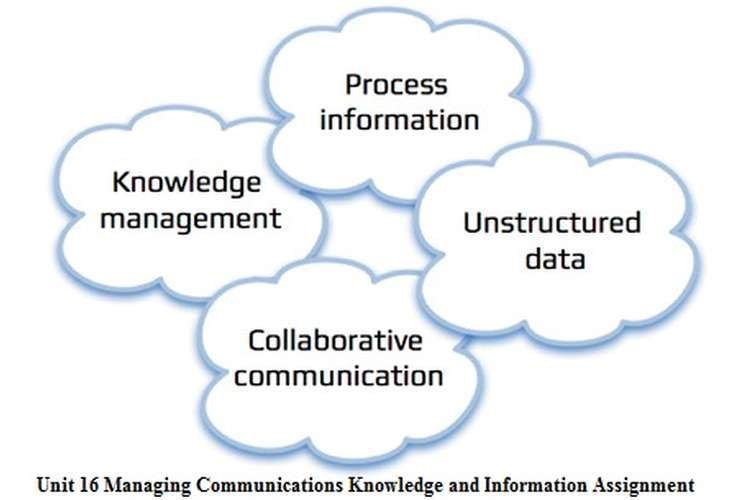
What is marketing communication and how does knowledge management promote it?
Marketing Communications is an important part of marketing management. In this study, we consider the marketing communication aspects and have an overall review of marketing communication history to understand what has been considered as marketing communication in previous decades. Then we analyze Marketing communication’s relation with knowledge management. Finally, the study shows how knowledge management could promote marketing communication in an organization.
Marketing Communications is an important part of marketing management tasks. Wherever there is a discussion of marketing management, marketing communications can be made. Therefore, the use of marketing communications is not limited to business activities. Even those who work in non-profit organizations and non-governmental organizations, and even a small charity, should pay attention to this discussion and not ignore it.
Of course, in the Complementary Marketing Courses, we focus more on the economics of marketing communications and the use of marketing communications in the business environment, given our target audience.
But with a little care, you will see the arguments raised, which can easily be found in other contexts. When we talk about communication, there must be messages, and these messages must be exchanged between the two parties with the least possible error.
For this reason, sometimes in a simple definition, communication is defined as an attempt to form common mental concepts between two parties.
What business messages do we have for our audience? Let’s review three of these messages together
- Customer Awareness – It is natural for any business to want to inform its potential customers about its products, services, features, and sales conditions.
- Customer persuasion – In any business, we are interested in convincing the customer in different areas. We want to convince our audience and potential customers that our product is a better choice than competitors’ products. Or we want to persuade him to visit our website or social media account. Or to participate in the events we hold.
- Encouragement to take action – It is clear that awareness and persuasion are ultimately done to persuade to take action. Part of our relationship with the customer is to ultimately motivate him to take the desired action (buying products and using services).

Communication underpins knowledge management. The communication of information is:
The process through which relationships are instituted, sustained, altered, or ended by increases or reductions in meaning. The purposeful activity of conveying data, information, and knowledge across space and time.
If you want to learn and use marketing communications for your business, the following definition of marketing communications is probably enough:
A simple definition of marketing communications (practical but inaccurate)
Any conscious or unintentional use of marketing tools with the aim of sending better and more accurate business messages to customers and better receiving their feedback.
The best four components of knowledge management are people, process, content/IT, and strategy. Regardless of the industry, size, or knowledge needs of your organization, you always need people to lead, sponsor, and support knowledge sharing. You need defined processes to manage and measure knowledge flows.
We can say that the three categories of informative, persuasive and persuasive messages that were introduced at the beginning are among the most important messages that are considered in marketing communications (but marketing communications are not limited to these messages).
If you prefer to read and memorize a precise scientific and academic definition of marketing communications, the following definition is more appropriate.
The scientific definition of marketing communications
Use all the elements of the marketing mix that are somehow related to the relationship between an organization and its target audience and affect marketing performance.
Although the audience includes the organization’s customers, they are not limited to customers, and even those within the organization are marketing communication communications audiences.
What term to be used instead of marketing communications?
The term Marketing Communications is a relatively new term. So it makes sense to ask what term was used before the term marketing communications became popular. Many words have been used instead of marketing communications and are still used.
The term advertising is one of the words that is still sometimes used as the equivalent of marketing communications. Of course, from the definition of marketing communications, you can guess that marketing communications, although they include advertising, are not limited to advertising.
You must remember that in the first sessions of marketing training, the term four marketing Ps (called marketing mix) is usually mentioned and it is said that one of the four main Ps is Promotion (along with the other three Ps: Product, Price and Place ).
If your mind is accustomed to the four Ps of marketing, you can remember that marketing communications involve promotion and beyond (although today, with the spread of marketing knowledge, it is less common for someone to limit marketing to four or more Ps).
There are many reasons for the term marketing communications to become popular, some of which we will mention here:
It is a two-way communication
Decades ago, most advertisements were a form of one-sided information. In fact, the business (or any other organization) conveys its message to the audience using mass media, and the audience receives it passively. Today, two-way tools for interactive communication are very popular.
As an example, just think of a business account on social media. You can no longer send a promotional message to the customer and sit back.
Sending any kind of message to the customer is the beginning of a conversation. Criticisms and approvals, complaints and thanks, suggestions and complaints are sent immediately after each message and a connection or conversation is formed.
Promotion goes beyond a few classic sales tools
Not so long ago, promotion was more limited to sales promotion. Offering discounts, gifts, or other similar policies to increase sales temporarily was a method used in the sales discussion as a promotion.
When you ask an influencer today to talk about you, think about increasing sales and attracting new customers. Literally, this is a kind of promotion. But with the classic definition of promotion that sellers have in mind, such activities hardly fall under the umbrella of promotion. Marketing communication is a term that can easily cover these types of activities.
There are many different ways to send a message to a contact
Sending messages to the audience is not limited to billboards and environmental advertising, or advertising on television and social media. From packaging and visual design to pricing and site selection, they can all contain messages for the customer. When we use the term marketing communications, it is kind of emphasis that any action that sends a message to the customer is a subset of marketing communications. With this perspective, we will be more sensitive to the messages exchanged between ourselves and our customers (and the audience in general).

One way to facilitate marketing communication is through knowledge management. Many organizations began to implement knowledge management during this period, the topics discussed in knowledge management research in this period focused more on business development, organization development, and framework development, development of operations and processes, and technological advancement.
The beginning of the third generation of knowledge management dates back to 2002, when the focus of the research was on analyzing the relationship between knowledge and action using structural models. In this period, knowledge is inherently social and cultural, and organizational knowledge management is identified only by changes in the organization’s operations and activities. Proper and complete implementation of knowledge management requires design and development of identification, creation processes; it is the maintenance, sharing and application of knowledge, these processes form the basis of the basic concepts of knowledge management.
Unlike the theoretical definition of knowledge management, the operational definition focuses more on the professional and empirical aspects of knowledge management. Aspects that occur in the real work environment and reflect the realities of the systems. In the operational context, instead of the presence of concepts, we are faced with variables that determine the implementation of knowledge management operations.
We now see that knowledge management plays an important role in advancing marketing goals. Knowledge management helps marketers get to know the market better. Have a better understanding of customers and make their goals more logical. Such planning also enables us to increase the company’s profit level and achieve greater customer satisfaction.
Author: SeyedMasih Ghaziasgar
Bibliography (standard format of citations according to international standards):
- Santoro, G., Vrontis, D., Thrassou, A., & Dezi, L. (2018). The Internet of Things: Building a knowledge management system for open innovation and knowledge management capacity. Technological Forecasting and Social Change, 136, 347-354.
- Webb, S. P. (2017). Knowledge management: Linchpin of change. Routledge.
- Obeidat, B. Y., Al-Suradi, M. M., & Tarhini, A. (2016). The impact of knowledge management on innovation. Management Research Review.
- Abualoush, S., Masa’deh, R., Bataineh, K., & Alrowwad, A. (2018). The role of knowledge management process and intellectual capital as intermediary variables between knowledge management infrastructure and organization performance. Interdisciplinary Journal of Information, Knowledge, and Management, 13, 279-309.
- Abubakar, A. M., Elrehail, H., Alatailat, M. A., & Elçi, A. (2019). Knowledge management, decisionmaking style and organizational performance. Journal of Innovation & Knowledge, 4(2), 104-114. 6. Putra, A. S., & Febriani, O. M. (2018, April). Knowledge Management Online Application in PDAM Lampung Province. In Prosiding International conference on Information Technology and Business (ICITB) (pp. 181-187).
- Bolisani, E., & Bratianu, C. (2018). The emergence of knowledge management. In Emergent knowledge strategies (pp. 23-47). Springer, Cham.
- Shujahat, M., Sousa, M. J., Hussain, S., Nawaz, F., Wang, M., & Umer, M. (2019). Translating the impact of knowledge management processes into knowledge-based innovation: The neglected and mediating role of knowledge-worker productivity. Journal of Business Research, 94, 442-450.
- Archer-Brown, C., & Kietzmann, J. (2018). Strategic knowledge management and enterprise social media. Journal of Knowledge Management.
- Schniederjans, D. G., Curado, C., & Khalajhedayati, M. (2020). Supply chain digitisation trends: An integration of knowledge management. International Journal of Production Economics, 220, 107439.



